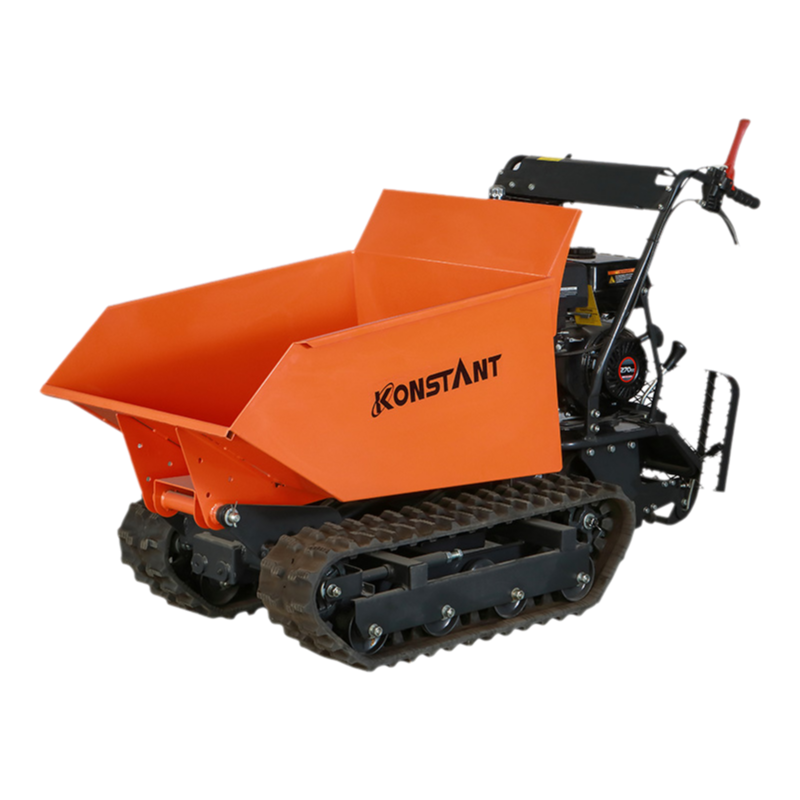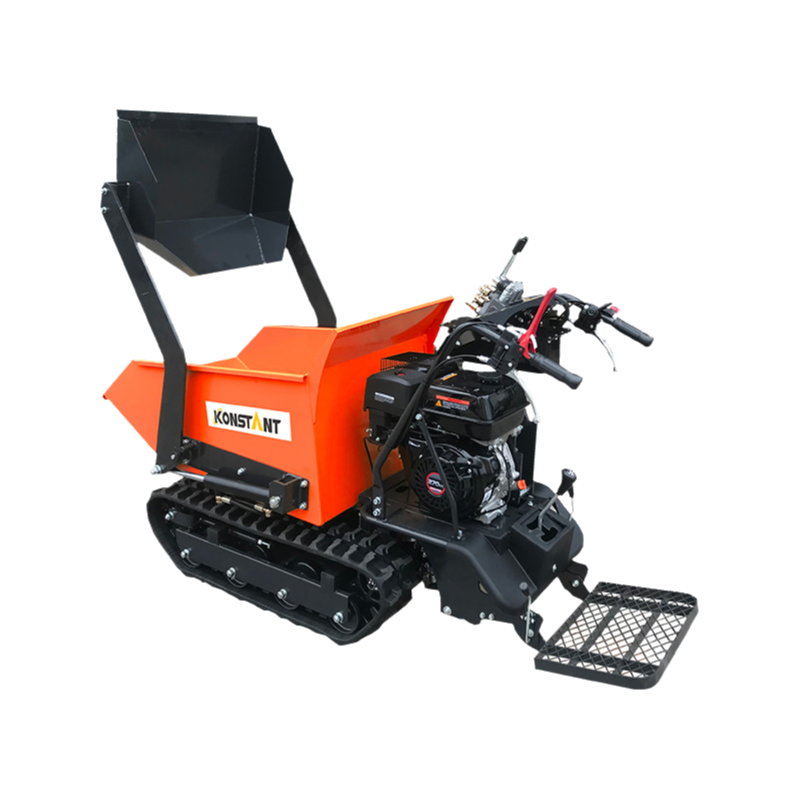Provide you with the latest enterprise and industry news
How Minidumperfactory’s Electric Mini Dumper Is Transforming Construction
Posted by Admin
Why the use of an Electric Mini Dumper is transforming construction sites across industries.The introduction of the Electric Mini Dumper into mainstream construction sites is not just a technological upgrade—it represents a shift toward smarter, cleaner, and more efficient project management. As more industries adopt sustainable practices, construction teams are increasingly looking for compact, eco-friendly equipment that meets performance demands without compromising environmental goals. The electric mini dumper has emerged as the go-to solution for forward-thinking builders and developers.
The immediate benefits of electric mini dumpers is their zero-emissions operation. Traditional construction equipment, particularly diesel-powered dumpers, are significant contributors to on-site air pollution.Diesel mini dumpers rely on internal combustion engines, which emit carbon dioxide, nitrogen oxides, and particulate matter. These pollutants contribute to air pollution and can create serious health and regulatory issues, especially in enclosed or urban environments. In contrast, electric mini dumpers produce no tailpipe emissions, making them ideal for indoor use and areas with strict environmental guidelines.Electric models support broader sustainability goals and comply more easily with modern green building standards. They help reduce the carbon footprint of construction activities and are often preferred in public sector contracts where environmental credentials are considered during bidding.However.in enclosed areas, such as urban developments or interior renovations, this becomes a health hazard and a regulatory concern. Electric models, in contrast, offer a silent, emission-free alternative that aligns with both environmental regulations and worker safety requirements.
Another critical advantage is the noise reduction associated with electric dumpers. Construction sites are typically known for their high decibel levels, which pose risks to hearing and general health for workers and surrounding communities. Electric motors drastically lower operational noise, allowing for more flexible working hours—particularly in noise-sensitive zones like hospitals, schools, or residential areas. This quiet efficiency leads to fewer complaints, smoother operations, and often faster completion timelines.
Efficiency and maneuverability also make electric mini dumpers stand out. Designed with narrow frames and lightweight bodies, these machines easily navigate tight corners and narrow pathways. This makes them especially ideal for confined or complex project sites such as landscaping, indoor demolition, or basement excavation. Coupled with high-torque electric motors, they deliver smooth acceleration and power on uneven terrain, allowing operators to complete tasks that would typically require multiple pieces of equipment.
From a cost perspective,electric mini dumpers typically have higher initial purchase prices than diesel ones. However, they make up for this over time through lower operating costs. Electricity is generally cheaper than diesel fuel, and electric drivetrains have fewer moving parts, meaning less frequent maintenance and a lower risk of mechanical failure.Diesel engines require regular servicing—oil changes, fuel filter replacements, and more. These maintenance needs increase downtime and add hidden costs. In contrast, electric mini dumpers reduce these concerns and can operate longer between service intervals, improving uptime and productivity.
Battery technology has also evolved significantly in recent years. Modern electric mini dumpers come with powerful lithium-ion batteries capable of lasting through an entire workday on a single charge. With the addition of fast-charging systems and swappable battery options, downtime is minimized, and productivity remains uninterrupted. This alleviates a previous concern among contractors who feared electric machines could not match the endurance of fuel-powered equipment.
Additionally, adopting electric dumpers enhances a construction company’s image. More project owners and government contracts are prioritizing green practices in their selection criteria. Using electric equipment signals a commitment to sustainability and innovation, potentially giving businesses a competitive edge during bidding processes. For firms trying to comply with environmental standards or LEED certification, electric dumpers also contribute positively to the necessary metrics.
Electric mini dumpers are not only revolutionizing construction—they are setting a new standard. Their ability to perform under pressure while reducing environmental and acoustic footprints makes them an essential asset for modern construction needs. As cities expand and green initiatives take precedence, equipment that combines functionality with sustainability will no longer be optional—it will be the norm.
An electric mini dumper can be a game-changer for your construction workflow, but only if chosen wisely. From battery life to terrain handling, each feature plays a role in determining performance, reliability, and cost-effectiveness. A thoughtful selection process will not only improve your project outcomes but also contribute to your company’s sustainability goals and operational efficiency.But choosing between electric and diesel ultimately depends on the nature of your projects, access to charging infrastructure, and long-term business goals. However, with increasing environmental regulations and the demand for more sustainable practices, the electric mini dumper is gaining traction as the smarter investment. It represents a forward-thinking approach that blends efficiency with responsibility.For companies that want to stay competitive while reducing their environmental footprint, electric mini dumpers are no longer an alternative—they are quickly becoming the standard.

 English
English русский
русский Français
Français Español
Español Deutsch
Deutsch















